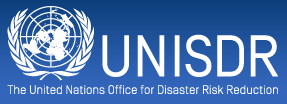The UN International Strategy for Disaster Reduction (UNISDR) has launched a month-long online consultation with the international business community, inviting businesses to contribute their expertise and ideas on the role of financial reform, regulation, building codes and incentives to allow business to make safer investments and avoid creating new risk in the process of driving economic growth and development.
 2 April 2014: The UN International Strategy for Disaster Reduction (UNISDR) has launched a month-long online consultation with the international business community, inviting businesses to contribute their expertise and ideas on the role of financial reform, regulation, building codes and incentives to allow business to make safer investments and avoid creating new risk in the process of driving economic growth and development.
2 April 2014: The UN International Strategy for Disaster Reduction (UNISDR) has launched a month-long online consultation with the international business community, inviting businesses to contribute their expertise and ideas on the role of financial reform, regulation, building codes and incentives to allow business to make safer investments and avoid creating new risk in the process of driving economic growth and development.
The consultation will ensure that the business community’s views are adequately captured in the post-2015 global DRR framework, which will succeed the Hyogo Framework for Action (HFA).
The dialogue is organized as follows: ‘Avoiding New Risk: Making Private Investments Resilient’ (starting 26 March), which will address financial reform and disaster risk as a business opportunity, and codes, planning and voluntary incentives; ‘Decreasing Existing Risk Exposure: Business Solutions for Governments and Enterprises’ (starting 2 April), which will address access to risk information and resilience solutions, as well as micro, small and medium enterprises and global value chains; and ‘Strengthening Resilience: Business Continuity Management and the Five Essentials for Business in DRR’ (starting 9 April). The five essentials are: promoting and developing public-private partnerships to analyze root causes of non-resilient activity; leveraging sectoral private sector expertise and strengths to advance disaster risk reduction (DRR) and mitigation; fostering data exchange and dissemination; supporting national and local risk assessments and socioeconomic cost-benefit analyses and capacity building; and supporting the development and strengthening of national and local laws, regulations, policies and programmes.
Rowan Douglas, CEO Capital, Science and Policy Practice, Willis Group, and Chair of the UNISDR Private Sector Working Group for the post-2015 global DRR framework, said the consultation’s goal is to engage the business community on how to reduce existing risk exposure by focusing on the exchange of risk information and business solutions between the public and private sectors. UNISDR Chief Margareta Wahlstrom said the UNISDR Private Sector Partnership members are providing feedback, but the aim is also “to cast the net further” to create an “incentive-led approach” to encourage business investment in disaster resilience.
The UNISDR Disaster Risk Reduction Private Sector Partnership is a global partnership between UNISDR and private businesses, which are mobilizing action to reduce the risk of disaster. Currently, the Partnership has 61 members, ranging from multinationals to small and medium enterprises. [Dialogue Webpage] [Opening remarks: Business for Disaster Risk Reduction and Resilience] [UNISDR Press Release] [Five Essential for Business in DRR]